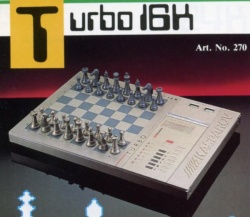The effect is minimal. If you do the search up to depth 11 you can choose to skip it ( I think you do that) orSo you don't have a transposition table "age" field that would cause many of those positions to be overwritten on this new search since the age would have increased by one?
search it again which is ultra fast despite the few transposition misses. Most engines do start search from
depth 1 anyway and there is no blow up of search at all. If you prefer to skip that search,
it means you are assuming you have everything in TT, so I don't understand your "age" field argument here.
Yes, we have a basic disagreement here. My argument is to improve play against a stronger opponent by assessing the riskAnd what happens when you search two moves that lead to the same score, a transposition? Or the search tree explodes and the second move takes almost as long as the first since few cutoffs happen? In either case, you really expend search effort that is _guaranteed_ to be 1/2 wasted. Where with "ponder the move" if you can beat 50% ponder hits, you are already ahead of the game and the higher the hit rate the more ahead in the timing game you get.
You are making one assumption I do not agree with. I believe it is better to use _all_ time on a single move. If it fails low, then we find a better move to play since on a fail low we are pretty sure we are pondering the right move. But no matter what happens, I want to search as deeply as possible. Otherwise I would be doing an N-best sort of search all the time, which would simply kill my search performance.
of the selected ponder move often may be a better idea.You are only looking at time saving as the ultimate factor.
I agree with you that you can save more time with your method if your prediction rate is above 50% (lets take 60%),
but the risk involved with choosing a ponder move may not be something you
want to take especially against a strong opponent.
Ok I will try to do that.I'll ask the same question again, show me any sane reason for pondering the position, given a hit rate of over 50% (mine seems to be over 60% in most games), and I'll give it some thought. But so far, no mathematical explanation, or logical explanation has been given, just "there must be a better way..."
Lets consider a case which I think is a must do even for your method.
Let us say you selected a weak ponder move against a strong opponent, and while pondering you realize that
your score goes up. This is solely due to the weakness of the selected ponder move and has got nothing
to do with you winning. In this case, wouldn't you want to search a better alternative move first instead of continuing pondering
with that ponder move? In all prediction failures (that is 40%!!) against a strong opponent, there is a general tendency for your ponder
score to rise. When you sniff trouble in the ponder search, you might as well start working on it immediately there. But in your case
the ponder search completely wastes its time searching something useless while pondering, and then spends time when it detects the trouble
after the opponent made the "unexpected second move" (which could have been detected while pondering).



